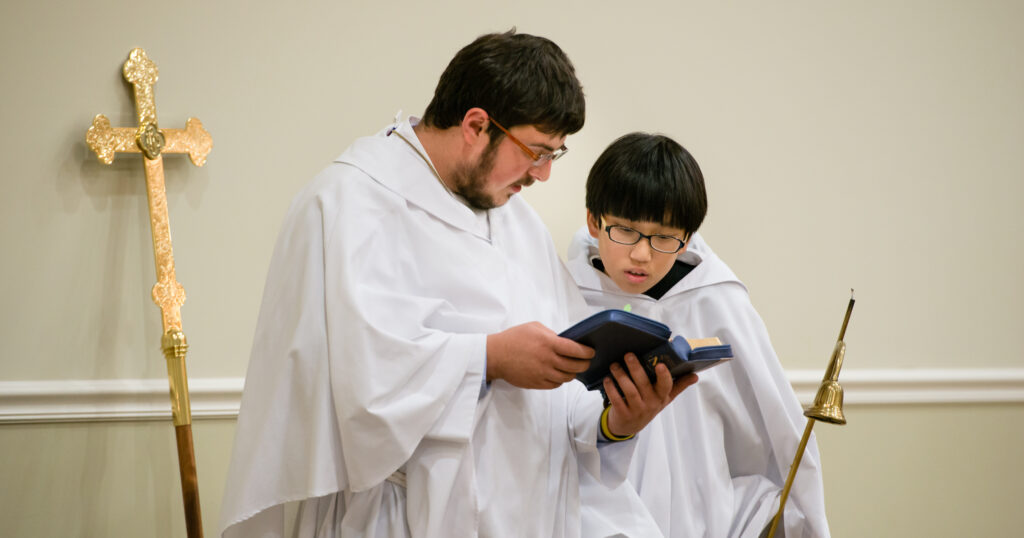by Matthew C. Harrison
There are several factors that come to play in the lives of men who end up studying to be pastors. There is a conviction, often growing over time, that being a pastor would be a God-pleasing vocation for which one might be well-suited. The Word of God, preached, read and spoken, works something in the heart and mind of a young man who has come to cherish the Gospel of the free forgiveness of Christ. He begins to consider his own future. His own desires are not final or definitive, but they are important. “The saying is trustworthy: If anyone aspires to the office of overseer [the word here is “bishop,” an important New Testament synonym for “pastor” or “shepherd”], he desires a noble task” (1 Tim. 3:1).
The apostle Paul lists several qualifications for this noble task:
Therefore an overseer must be above reproach, the husband of one wife, soberminded, self-controlled, respectable, hospitable, able to teach, not a drunkard, not violent but gentle, not quarrelsome, not a lover of money. He must manage his own household well, with all dignity keeping his children submissive, for if someone does not know how to manage his own household, how will he care for God’s church? He must not be a recent convert, or he may become puffed up with conceit and fall into the condemnation of the devil. Moreover, he must be well thought of by outsiders, so that he may not fall into disgrace, into a snare of the devil. (1 Tim. 3:2–7)
Can a young man, preparing to head to the seminary, live up to these biblical requirements to be a pastor? Well, not really. He is embarking on a journey to grow into the office that he will occupy, and hopefully, he will never stop growing in Christ. The apostolic mandates tell us a pastor will have to be a man of genuine faith in Christ and have a life that reflects that, along with a good reputation and ability to teach. Our seminary entrance process evaluates a man, including his potential to serve in the capacity of pastor — weaknesses and all.
By the end of the period of rigorous study, the student’s doctrine and life are well known, and the seminaries together with the Council of Presidents present qualified men to be called by congregations of the church. That call is a formal, divine call accomplished by the actions of God Himself, through a congregation or congregations in fellowship and cooperation with the broader church. After examination of doctrine and life and a call by a congregation or Synod (for example, as a missionary), a man is ordained and placed into the office. In the ordination, we as the whole church acknowledge that this man is a pastor. “No one should publicly teach in the Church, or administer the Sacraments, without a rightly ordered call,” that is, without examination, call and ordination (AC XIV).
Young man, go to one of our seminaries — Fort Wayne or St. Louis. You will not regret it. You will learn. You will study the Bible in the original languages. You will delight in Christ and in a richness in His Scriptures that will dramatically alter your life. You may well enter the seminary convinced by your friends and family that you are quite amazing, with an incomparable personality. But trust me, you are entering on a journey that will humble you and bring you to realize you are nothing and that Christ is everything. You will learn to gift your people with Christ. You will learn that your personality cannot carry the day and go the distance against sin, death and the devil. You will come to nothing, that Christ may be all in all. And it will be the greatest adventure of your life sharing Jesus with those who do not know Him — with the tired, the beaten, the sinner, the mentally ill, the suffering. And it will be all the more meaningful for you as you suffer crosses yourself. And at the last you shall say, “So you also, when you have done all that you were commanded, say, ‘We are unworthy servants; we have only done what was our duty’” (Luke 17:10). “Well done, good and faithful servant” (Matt. 25:21).
–Pastor Harrison





